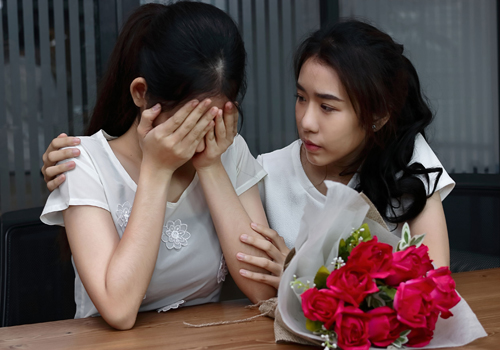Rekindling Hope in Marital Conflicts
08/03/2022 | By:

We are a husband-wife team volunteering with TOUCH Community Services. Specifically, we volunteer at TOUCH Marriage Support arm as facilitators in their Marriage Preparation Programme. From there, we foster friendships with participating couples where we journey with them in their marriage journey.
We open our homes to couples as they share their lives with us. We get to witness the highs of their married lives – weddings, first matrimonial homes, welcoming of their first (and subsequent) child(ren). On the flip side, we also witness the lows of their married lives. It is not uncommon for couples to meet us to trash out unresolvable issues or for one half of a couple to confide in one of us (usually husband to husband or wife to wife).
Marital Confidants and Mentors
Through our voluntary work, we were given the opportunity to attend UniLEARN’s Marital First Responders (MFR) course and the MFR – Train the Trainer (TTT) course. The courses have equipped us with relevant knowledge and skills that are practical to our voluntary work.
 We attended MFR-TTT with the understanding that it would equip us to train others to be effective marital confidants – an extension of our voluntary work. However, we walked away from the course taking more than what was expected – we were able to apply what was taught in the MFR course more than before in our core voluntary work. As what a renowned American physicist and educator, Dr Frank Oppenheimer said, “The best way to learn is to teach”. In our case, learning to be trainers made us more effective as marriage mentors.
We attended MFR-TTT with the understanding that it would equip us to train others to be effective marital confidants – an extension of our voluntary work. However, we walked away from the course taking more than what was expected – we were able to apply what was taught in the MFR course more than before in our core voluntary work. As what a renowned American physicist and educator, Dr Frank Oppenheimer said, “The best way to learn is to teach”. In our case, learning to be trainers made us more effective as marriage mentors.
Holding Hope
As we reflect on what has changed in our approach towards couples since MFR-TTT concluded, we both agreed that among many pointers that we started applying, holding hope for the couples was our biggest take-away. In our recent experience with a couple in a marital crisis, we consciously applied what we learned in MFR-TTT. At the crossroad of contemplating divorce with their minds fogged by fights and issues, it was when they saw hope in the form of what has been good in their marriage and what is lacking yet doable in their marriage that led them to choose the path of rebuilding their marriage.
MFR-TTT course also became a platform for us to learn with fellow course mates in the field of working with families and couples, either professionally or voluntarily. Together, we pooled and formed an invaluable wealth of experiences and resources that we could tap into.
We have set out wanting to journey with couples in their marital walk and we are thankful for these courses that have helped us to be more effective and competent.
About the Author
